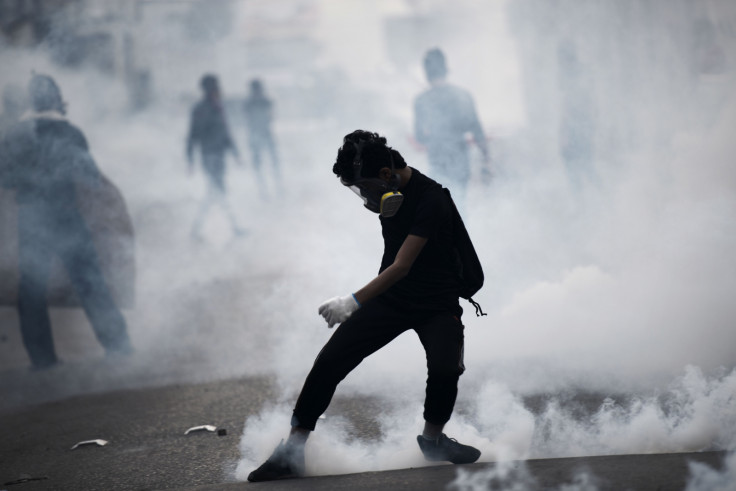Bahrain crisis: US arms sales to Bahraini regime undermines Obama's commitment to human rights

"The government of Bahrain has made some meaningful progress on human rights reform and reconciliation."
With this flexible formulation, the US justified the decision to lift the hold on arms transfers to the Bahrain Defence Force and National Guard, which had been in a place in an effort to pressure the Bahraini regime to reform its violent tactics towards protesters.
As part of this process, Bahrain was supposed to accept reforms proposed by the Bahrain Independent Commission of Inquiry (BICI), a body that tracked and publicised the violent tactics employed by the government against Arab Spring protesters.
The failure to truly press Bahraini officials with all available tools will undercut both Bahrain's long-term political stability and America's global commitment to protecting human rights.
America's 29 June announcement of the resumption of arms sales suggests that the Bahraini government's climbdown from the nadir of violence in February and March 2011 was satisfactory, if, in the words of the State Department: not quite "adequate".
But even as State Department employees were drafting and editing the arms-release statement, the government of Bahrain was disabusing the Obama Administration of the notion that it had the slightest interest in human rights protections and political reconciliation.
Two weeks before the decision, a court sentenced Sheikh Ali Salman, head of the opposition society al-Wefaq, to four years in prison for "inciting hatred" and "insulting public institutions" charges which Amnesty International dismissed outright. The day before the U.S. dropped its hold, the government sentenced another opposition leader, Fadhel Abbas, to five years in prison for tweeting his condemnation of the war in Yemen.
Not three days after the statement, authorities arrested Majeed Milad, another participant in the erstwhile National Dialogue, on charges of "instigating hatred of the regime." Lest a casual observer think this to be all party politics, Nabeel Rajab, the prominent nonviolent and nonpartisan human rights defender, was only just released for unspecified "health reasons" after languishing in prison since 2 April. Authorities also targeted him for unwelcome criticism of the Yemeni conflict.
This, even as the State Department declared that Bahraini officials were "contribut[ing] to an environment more conducive to reconciliation and progress."
The unkindest cut of all for the State Department, however, came on June 11, when the Bahrain Interior Ministry arrested Ebrahim Sharif. On that day, authorities arrested the former leader of the secular opposition society Wa'ad ("Promise"), for "incitement to overthrow the government".
As evidence, officials cited a twenty-minute speech Sharif had delivered on 10 July. An examination of Sharif's words reveals nothing in the way of incitement or coup-plotting, but rather the nonviolent dissidence to which the members of Bahrain's democratic movement have held for years.
His calls for equal rights and a constitutional monarchy, and his remark that state authorities, and not opposition members, were practising violence, proved a bridge too far for the ruling family.
Sharif's arrest, coming three weeks after his early release from a five-year prison sentence, should prove deeply embarrassing to U.S. government officials. After all, "the recent release of a number of prisoners charged with crimes related to their political association and expression," was a step that Bahrain had supposedly taken to make reconciliation and progress more conducive.

Nevermind that "prisoners," plural, was a misnomer, that human rights activists like Abdulhadi al-Khawaja and Naji Fateel are still imprisoned. Nevermind that American citizen Taqi al-Maidan remains behind bars, suffering torture and maltreatment on unsubstantiated charges.
Ibrahim Sharif, apparently, was meant to stand in for the thousands of political prisoners that security forces have corralled into overcrowded, under-resourced jails, inmates who wait for an international intervention that seemingly will never come.
By re-arresting Sharif, the Bahraini government has aborted its lone reconciliatory move in recent months. The justification for the arms release has been totally undermined, the US government's commitment to human rights reform brought into serious doubt.
Obama administration officials, unfortunately, may only realize their error now that Sharif is once again detained. They must know that they have lost their surest leverage for pushing the Bahraini government toward adopting changes that will arrest the political crisis and bring stability to an island kingdom whose disarray would shake the region.
In order to regain this lost leverage, DoS would do well to look to the European Parliament. On 9 July 2015, the body adopted a comprehensive resolution condemning the human rights situation in Bahrain, demanding that the government follow through on its extensive reform commitments. Additionally, the resolution calls for the EU to prohibit exports of tear gas and crowd control equipment, which security forces employ to lethal effect.
The EU does not stop there, however; its resolution cites the litany of broken reform promises and long-standing abuses that Bahraini officials continue to perpetuate. It rightfully states that the government has failed to implement the BICI's core recommendations while highlighting the cases of long-imprisoned activists, many of whom were sentenced under the provisions of the government's catch-all anti-terrorism law.
What the European Parliament lacks, which the US government has, are the bilateral tools to make Bahrain's rulers take such condemnation seriously. Instead of settling for the occasional prisoner swap, the US should hold Bahrain to its extensive international promises.
While this round of arms transfers is already underway, a re-commitment to the implementation of the BICI core recommendations should preface any future security agreement between the two countries. Otherwise, failure to truly press Bahraini officials with all available tools will undercut both Bahrain's long-term political stability and America's global commitment to protecting human rights.
© Copyright IBTimes 2025. All rights reserved.





















